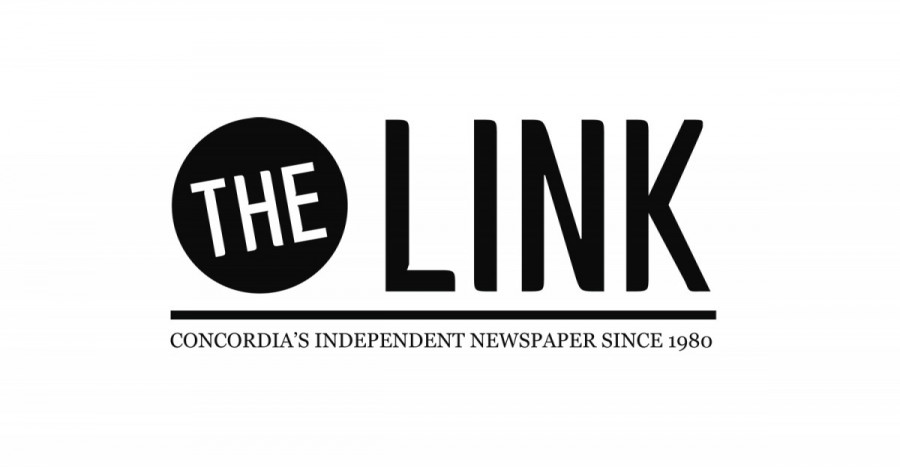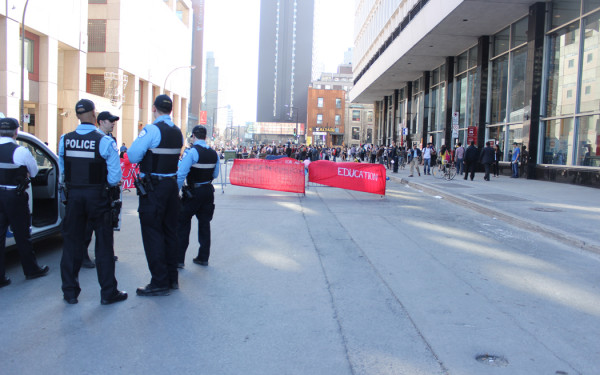Letter to the President
GSA President Appeals to Shepard: Drop Strike Charges
Dear Dr. Shepard,
It is not of your doing, yet as the new president of Concordia University you have inherited a culture of contempt, and you are now in a position to facilitate reconciliation in our campus community.
Instead of being proud of the critically-minded students amidst its corridors, during the student strike at Concordia your senior administration encouraged an atmosphere of political discrimination that culminated in this unfortunate situation: some of Concordia’s top students are now charged under the university’s Code of Rights and Responsibilities, for respecting a democratic and historical tradition that is part of Quebec’s distinctiveness—a student strike.
Concordia University is recognized for its vibrant interdisciplinary, progressive and community-engaged programs, centres, schools and institutes that encourage students to make their education relevant to the greater community. Yet now some of our top students are being punished for enacting such ideas through practice.
The Concordia Graduate Students’ Association considers the administration’s response and leadership around the strike to date irresponsible and inappropriate for building a spirit of trust within a campus community that thrives on “intertwining education with social responsibility” and “encouraging students to become active, critical and global citizens.” (Ed.’s Note: These are quotes from concordia.ca.)
In that spirit, we strongly urge you to recognize the importance of a socially responsible student populace, and to cancel the strike-related charges against students.
One crucial basis of our request is a piece of information often ignored by the administration when claiming they cannot interfere in this issue: the administration’s central role in instigating these charges.
On March 23, 2012, the administration released a letter stating that it would itself begin to lay charges against students who carried out their strike mandates.
The letter encouraged students, faculty and security to target striking students, stating that “Those unable or refusing to identify themselves [would] be photographed and charged once they have been identified.”
Concordia hired extra security contractors and allegedly spent more than $200,000 on security during the strike. In one instance a female student was assaulted by one of these security agents, hit across the face.
This took place before the unconstitutional Law 12—popularly known as Bill 78—was enacted, a law that will soon be repealed.
Considering that in all instances strikers acted peacefully and respectfully—the only violence perpetrated at Concordia was by security—the administration’s response was disproportionately harsh and damaging.
The consequences of the administration’s policy were an atmosphere of political discrimination, but also the creation of a space where students who are already susceptible to intimidation based on their sexual orientation and gender did not feel safe to report these abuses.
The effects of this are described in the March 24 joint letter from the Concordia Student Union and the GSA by Gabrielle Bouchard, executive external of the Women’s Studies Student Association of Concordia: “Picketing students who have been subject to verbal abuse or even violence by students not abiding by strike votes have predominantly been women. Many feel reluctant to report this to the university because of [the university’s] perceived, and now explicit bias.”
We cannot ignore that the flood of charges related to peaceful student strikes will undeniably clog the system for serious and legitimate complaints by victims of harassment, sexual assault and abuse or mistreatment by supervisors.
We cannot forget the numerous queer students who were surrounded by non-strikers at picket lines, during which they were harassed with homophobic comments. No policy was written by the university to encourage students to file complaints against aggressive, homophobic, sexist or racist behaviours in these situations.
Perhaps the most disingenuous part of the administration’s March 23 letter was the description of students’ actions, characterized as a “disruption of university activities by a minority of protesters who refuse to respect the rights of others.”
The reality is that students decided democratically—at general assemblies that all members were encouraged to attend—to picket their own classes. Students then carried out their duty to fulfill their general assembly’s mandates.
This brings us to an essential point: at the GSA, we are all strikers. If the administration charged these students, why didn’t they also charge the GSA, and every student who attended our assemblies, not to mention those students who did not show up to vote and who are thus equally responsible for our strike vote?
It is unfair to target individuals whose actions were based on a collective, democratic decision.
Dr. Shepard, now, as the strike reaches its end, you have an opportunity to start your term with a clean slate and a gesture of goodwill.
We are aware that not even one member of your senior administration or of Concordia’s Board of Governors has been held accountable for previous irresponsible decisions, including well-documented excessive severance packages, the resulting $2 million fine from the government for Concordia, and the hiring of a security firm that employed an unlicensed agent who assaulted a student.
We are left to ask: Why is so much energy going into making an example of these students, when the Concordia community has not even received an apology from its leadership for irresponsible acts over the past years that have placed our education and our safety at risk?
Navigating together through these difficult waters in a climate of mutual respect and truth will begin with canceling all charges against these students.
—Daria Saryan,
President, Concordia Graduate Students’ Association


_600_832_s.png)

4_600_375_90_s_c1.jpg)
01_600_375_90_s_c1.jpg)
2_600_375_90_s_c1.jpg)
